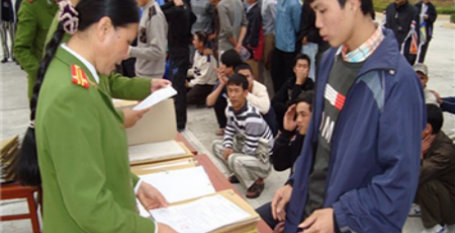Vietnam may be considering housing transgender and gay prisoners in jails separate from those currently in use so as to protect them from sexual harassment.
This plan has been proposed by the Social, Economic and Environmental Institute to the Ministry of Public Security. The institute has been studying gender-related problems for many years, according to Talk Vietnam.
According to the institute’s 2014 report, the majority of transgender prisoners wanted separate jails to avoid the risks of sexual harassment. Gay and transgender prisoners face the highest risk of sexual harassment from other inmates in prison, the report said.
Currently, transgender prisoners in Vietnam jails can only either be held in solitary confinement or left to mix with the general population, the institute said.
It recommends that prisoners be allowed to determine their gender identity, while gay men be offered imprisonment separate from the general population, rather than subjected to solitary confinement.
The 2014 report stated that there were 219 transgender prisoners in Vietnam, 58 percent of whom wanted to be housed in separate jails, while 38 percent identifying as female wanted to be sent to women’s prisons. Of the female to male transgender individuals, 72.4 percent wanted to be housed in separate prisons.
In various prison systems, rates of victimization are especially high for gay and bisexual prisoners with over a third of them suffering sexual abuse while incarcerated. Many agencies have documented high rates of both prisoner-on-prisoner sexual assault and staff-on-prisoner abuse.
There is no reason to believe that prisons in Vietnam are an exception given that its prisons are notorious for their inhuman treatment of prisoners very often kept under intentionally abusive conditions.
Reports by former prisoners indicate that besides overcrowding, remain harsh and squalid. Human Rights Watch has also reported poor conditions with prisoners detained in dark cells, in chains and subject to torture. The most recent statistics from 1999 indicate a prison population of 55,000 or 71 per 100,000 of the national population.
Vietnam may be considering housing transgender and gay prisoners in jails separate from those currently in use so as to protect them from sexual harassment.
This plan has been proposed by the Social, Economic and Environmental Institute to the Ministry of Public Security. The institute has been studying gender-related problems for many years, according to Talk Vietnam.
According to the institute’s 2014 report, the majority of transgender prisoners wanted separate jails to avoid the risks of sexual harassment. Gay and transgender prisoners face the highest risk of sexual harassment from other inmates in prison, the report said.
Currently, transgender prisoners in Vietnam jails can only either be held in solitary confinement or left to mix with the general population, the institute said.
It recommends that prisoners be allowed to determine their gender identity, while gay men be offered imprisonment separate from the general population, rather than subjected to solitary confinement.
The 2014 report stated that there were 219 transgender prisoners in Vietnam, 58 percent of whom wanted to be housed in separate jails, while 38 percent identifying as female wanted to be sent to women’s prisons. Of the female to male transgender individuals, 72.4 percent wanted to be housed in separate prisons.
In various prison systems, rates of victimization are especially high for gay and bisexual prisoners with over a third of them suffering sexual abuse while incarcerated. Many agencies have documented high rates of both prisoner-on-prisoner sexual assault and staff-on-prisoner abuse.
There is no reason to believe that prisons in Vietnam are an exception given that its prisons are notorious for their inhuman treatment of prisoners very often kept under intentionally abusive conditions.
Reports by former prisoners indicate that besides overcrowding, remain harsh and squalid. Human Rights Watch has also reported poor conditions with prisoners detained in dark cells, in chains and subject to torture. The most recent statistics from 1999 indicate a prison population of 55,000 or 71 per 100,000 of the national population.

